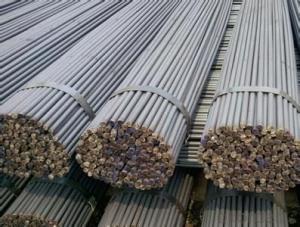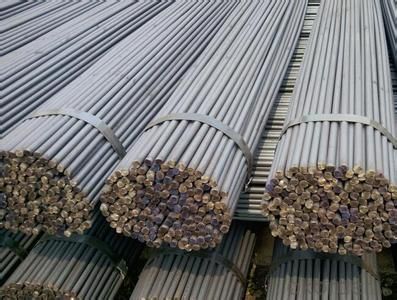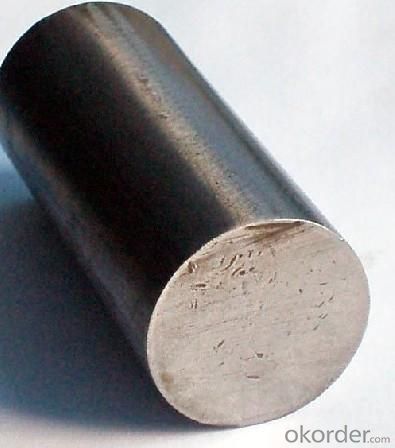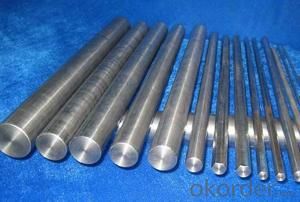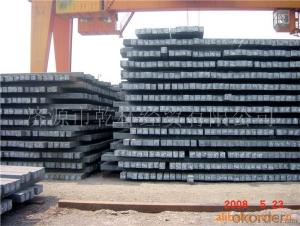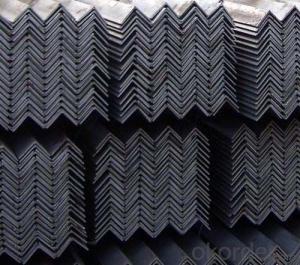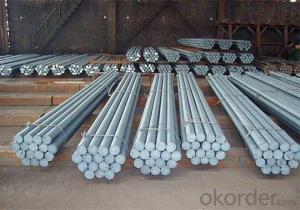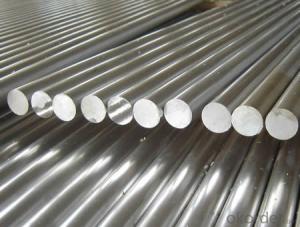Round Bar Hot Rolled High Quality 3MM-25MM
- Loading Port:
- Tianjin
- Payment Terms:
- TT or LC
- Min Order Qty:
- 25 m.t.
- Supply Capability:
- 200000 m.t./month
OKorder Service Pledge
OKorder Financial Service
You Might Also Like
Product Description:
OKorder is offering high quality Hot Rolled Steel I-Beams at great prices with worldwide shipping. Our supplier is a world-class manufacturer of steel, with our products utilized the world over. OKorder annually supplies products to European, North American and Asian markets. We provide quotations within 24 hours of receiving an inquiry and guarantee competitive prices.
Product Applications:
1) Suitable for making various strong cutting tool abrasion resistance, impact resistance.
2) Used to produce all kinds of high hard and super hard saw blade, drill, tap, broach, gear hob and various kinds of milling cutter.
3) Used for advanced punching die, screw die, and the toughness and complicated shape of the punch, etc.
4) Is used for cold forging die and drawing mode, etc.
5) Recommended watchcase factory, screw factory and other cold stamping products industry use.
Product Advantages:
OKorder's Steel I-Beams are durable, strong, and resist corrosion.
Main Product Features:
· Premium quality
· Prompt delivery & seaworthy packing (30 days after receiving deposit)
· Corrosion resistance
· Can be recycled and reused
· Mill test certification
· Professional Service
· Competitive pricing
Product Specifications:
1. Grade: GB, JIS, ASTM, EN
2. Grade: Q235, SS400, A36, S235JR
3. Diameter and mass: As below
Diameter | Mass | Diameter | Mass | Diameter | Mass |
(mm) | (kg/m) | (mm) | (kg/m) | (mm) | (kg/m) |
6 | 0.22 | 22 | 2.98 | 53 | 17.30 |
7 | 0.30 | 24 | 3.55 | 56 | 19.30 |
8 | 0.40 | 25 | 3.85 | 60 | 22.20 |
9 | 0.50 | 26 | 4.17 | 63 | 24.50 |
10 | 0.62 | 28 | 4.83 | 65 | 26.00 |
11 | 0.75 | 30 | 5.55 | 70 | 30.20 |
12 | 0.89 | 32 | 6.31 | 75 | 34.70 |
13 | 1.04 | 34 | 7.13 | 80 | 39.50 |
14 | 1.21 | 36 | 7.99 | 85 | 44.50 |
15 | 1.39 | 38 | 8.90 | 90 | 49.90 |
16 | 1.58 | 40 | 9.86 | 95 | 55.60 |
17 | 1.78 | 42 | 10.90 | 100 | 61.70 |
18 | 2.00 | 45 | 12.50 | 120 | 88.85 |
19 | 2.23 | 48 | 14.20 | 140 | 120.93 |
20 | 2.47 | 50 | 15.40 | 150 | 138.82 |
4. Material: Mild Steel
5. Heat treatment of high quality steel:
Fire: Isothermal annealing temperature is 800 ~ 880 °C, with 10 ~ 20 °C, the furnace cooling to about 600 °C, hardness above HB269.
Preheat temperature: 730-730 °C
Quenching temperature: 1190-1210 °C
Tempering temperature: 540-595 °C
Cold drawn, hardness 285 HBS
Cold drawn after annealing condition, hardness 277 HBS
Quenching methods: oil quenching, air cooling or salt bath quenching
FAQ:
Q1: How do we guarantee the quality of our products?
A1: We have established an advanced quality management system which conducts strict quality tests at every step, from raw materials to the final product. At the same time, we provide extensive follow-up service assurances as required.
Q2: How soon can we receive the product after purchase?
A2: Within three days of placing an order, we will begin production. The specific shipping date is dependent upon international and government factors, but is typically 7 to 10 workdays.
Q3: What makes stainless steel stainless?
A3: Stainless steel must contain at least 10.5 % chromium. It is this element that reacts with the oxygen in the air to form a complex chrome-oxide surface layer that is invisible but strong enough to prevent further oxygen from "staining" (rusting) the surface. Higher levels of chromium and the addition of other alloying elements such as nickel and molybdenum enhance this surface layer and improve the corrosion resistance of the stainless material.
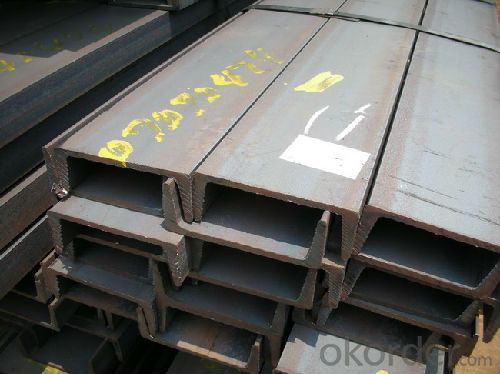
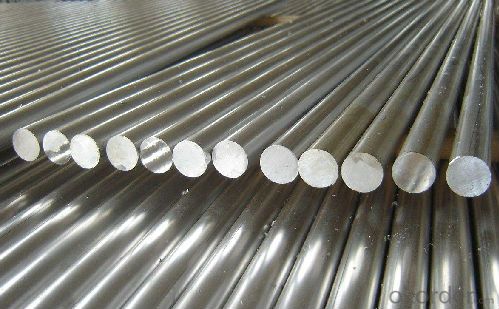
- Q: What is the difference between a rough turned and a hot rolled steel round bar?
- A rough turned steel round bar is a type of steel bar that has been partially machined to remove imperfections and excess material, leaving a rough surface finish. This process helps to refine the dimensions and shape of the bar, making it more accurate and consistent. On the other hand, a hot rolled steel round bar is a type of steel bar that has been heated to high temperatures and then passed through a series of rollers to achieve the desired shape and size. This process results in a smooth surface finish and provides a uniform grain structure, which enhances the strength and durability of the steel. In summary, the main difference between a rough turned and a hot rolled steel round bar lies in the surface finish and manufacturing process used to produce them.
- Q: What are the different grades of tool steel round bars?
- Various grades of tool steel round bars are offered, each possessing unique properties and characteristics tailored to specific applications. Examples of these grades include: 1. W1: With its relatively low carbon content, W1 is a water-hardening tool steel renowned for its exceptional toughness and good wear resistance. It finds common usage in cutting tools and woodworking tools. 2. O1: O1 tool steel round bars are oil-hardening tool steel boasting high carbon content. They exhibit excellent wear resistance, high toughness, and exceptional dimensional stability. O1 tool steel is frequently employed for punches, dies, and cutting tools. 3. A2: A2 tool steel round bars are air-hardening tool steel with moderate carbon and chromium content. They offer good wear resistance, superior toughness, and high dimensional stability. A2 tool steel is a popular choice for blanking and forming dies, as well as shear blades. 4. D2: D2 tool steel round bars are characterized by their high carbon and chromium content, providing outstanding wear resistance and good toughness. They exhibit remarkable resistance to abrasive wear and are commonly utilized in the production of cutting tools, punches, and forming dies. 5. M2: High-speed M2 tool steel round bars are enriched with a notable amount of tungsten, molybdenum, and vanadium. They deliver exceptional wear resistance, high red hardness, and good toughness. M2 tool steel is typically employed for high-speed cutting tools, drill bits, and machining tools. 6. S7: S7 tool steel round bars are air-hardening shock-resistant tool steel. They possess high impact toughness, good wear resistance, and excellent heat resistance. S7 tool steel is frequently applied in applications necessitating high shock resistance, such as chisels and hammers. These are merely a few instances of the diverse grades of tool steel round bars available in the market. The choice of grade hinges on factors such as the specific application, desired hardness, wear resistance, toughness, and heat resistance required. It is crucial to seek guidance from a knowledgeable supplier or metallurgist to ascertain the most appropriate grade for a given application.
- Q: What is the difference between the heat treatment of cold drawn round steel and the heat treatment of wrought round steel?
- Solution treatment: the alloy can be dissolved in various phases, strengthening solid solution, improving toughness and corrosion resistance, eliminating stress and softening, so as to continue processing and forming.
- Q: Can steel round bars be used for shafts or axles?
- Yes, steel round bars can be used for shafts or axles. Steel round bars are commonly used in various industries, including automotive, machinery, and construction, for their strength, durability, and versatility. They are often chosen for shafts or axles due to their ability to withstand heavy loads, provide reliable support, and resist wear and tear. Steel round bars can be machined and heat-treated to meet specific requirements, making them suitable for use as shafts or axles in various applications where strength and reliability are crucial, such as in vehicles, industrial equipment, and rotating machinery.
- Q: How do you prevent steel round bars from rusting during storage?
- In order to prevent rusting of steel round bars during storage, various measures can be taken: 1. Ensure the round bars are stored in a dry environment: Moisture is a major factor in causing rust. It is important to have a dry storage area that is free from leaks or humidity. Consider using dehumidifiers or moisture-absorbing products to maintain dryness. 2. Apply a rust inhibitor: Coating the steel round bars with a rust inhibitor creates a protective layer that prevents rust formation by blocking moisture and oxygen. Rust inhibitors are available in different forms, such as sprays, oils, or waxes. Follow the manufacturer's instructions when applying the inhibitor. 3. Store the round bars in a climate-controlled area: Fluctuations in temperature can result in condensation, which can lead to rust formation. Storing the round bars in a climate-controlled area with a consistent temperature helps minimize the risk of rusting. 4. Package the round bars properly: Use suitable packaging materials to prevent direct contact between the steel round bars and moisture or other contaminants. Consider wrapping them in plastic or using packaging materials that are resistant to moisture. 5. Regularly inspect and maintain: Periodically check the stored round bars for any signs of rust or damage. If any rust spots are found, clean them promptly and reapply a rust inhibitor to prevent further corrosion. Remember, prevention is crucial in avoiding rust on steel round bars during storage. By implementing these measures, you can greatly reduce the risk of rust formation and maintain the quality of the round bars.
- Q: Can steel round bars be used for making springs?
- Yes, steel round bars can be used for making springs. Steel is a commonly used material for springs due to its strength, durability, and flexibility. Round bars can be machined and shaped into the desired form for different types of springs, making them suitable for various applications.
- Q: Can steel round bars be used in the production of telecommunications equipment?
- Yes, steel round bars can be used in the production of telecommunications equipment. Steel round bars are commonly used in various industries, including telecommunications, due to their strength, durability, and versatility. They can be used to create structural components, frames, supports, and mounting brackets for telecommunications equipment. Steel round bars can also be machined and shaped into specific forms required for different equipment applications. Additionally, steel round bars can provide necessary electromagnetic shielding and grounding capabilities, which are essential for telecommunications equipment to function properly.
- Q: What are the different types of steel alloys used for round bars?
- There are various types of steel alloys used for round bars, including carbon steel, stainless steel, alloy steel, tool steel, and high-speed steel. Each type has unique properties and characteristics that make it suitable for different applications. Carbon steel is widely used for its strength and affordability, while stainless steel offers excellent corrosion resistance. Alloy steel is known for its durability and versatility, while tool steel is specifically designed for cutting and shaping tools. High-speed steel is used for its ability to withstand high temperatures and retain its hardness.
- Q: What are the different types of steel round bar alloys for improved machinability and strength?
- Some of the different types of steel round bar alloys for improved machinability and strength include free-cutting steel, alloy steel, and tool steel. Free-cutting steel is specifically designed to be easily machinable, allowing for faster and more efficient machining processes. Alloy steel contains various additional elements such as chromium, nickel, or molybdenum, which enhance its strength and wear resistance. Tool steel is a high-performance alloy that is often used in the production of cutting tools and machinery components, offering exceptional hardness and durability.
- Q: Can steel round bars be used for making cutting tools?
- Yes, steel round bars can be used for making cutting tools. Steel is a versatile material known for its strength and durability, making it suitable for various applications including cutting tools. The round bars can be shaped and sharpened to create different types of cutting tools such as knives, blades, or drill bits.
Send your message to us
Round Bar Hot Rolled High Quality 3MM-25MM
- Loading Port:
- Tianjin
- Payment Terms:
- TT or LC
- Min Order Qty:
- 25 m.t.
- Supply Capability:
- 200000 m.t./month
OKorder Service Pledge
OKorder Financial Service
Similar products
Hot products
Hot Searches
Related keywords
